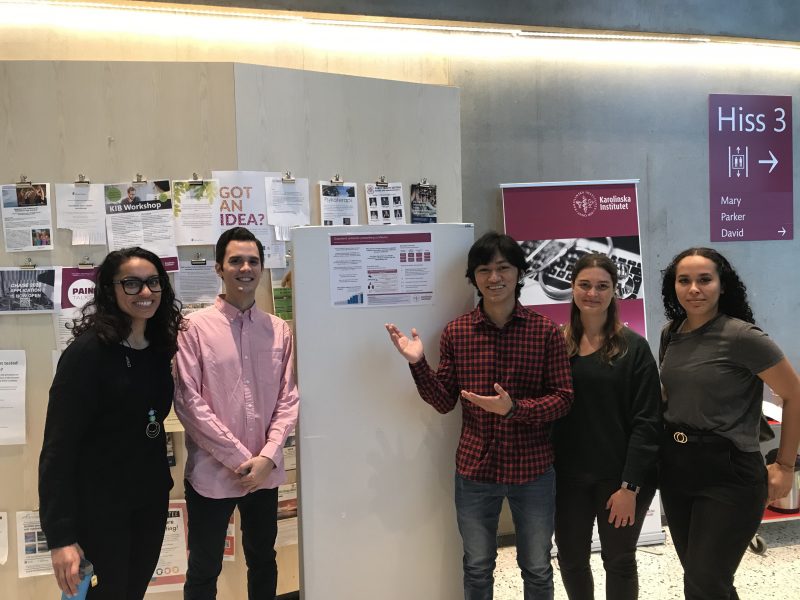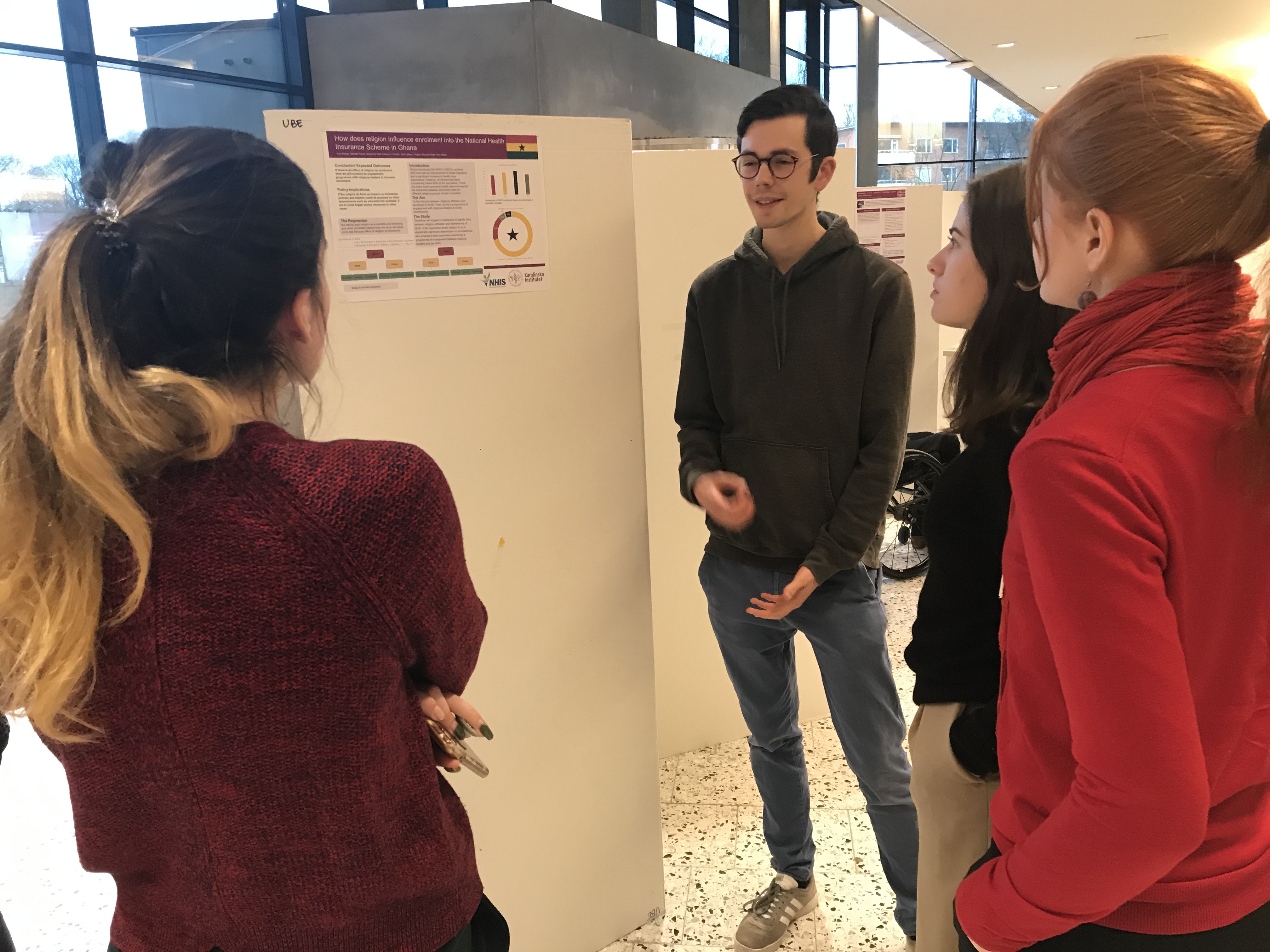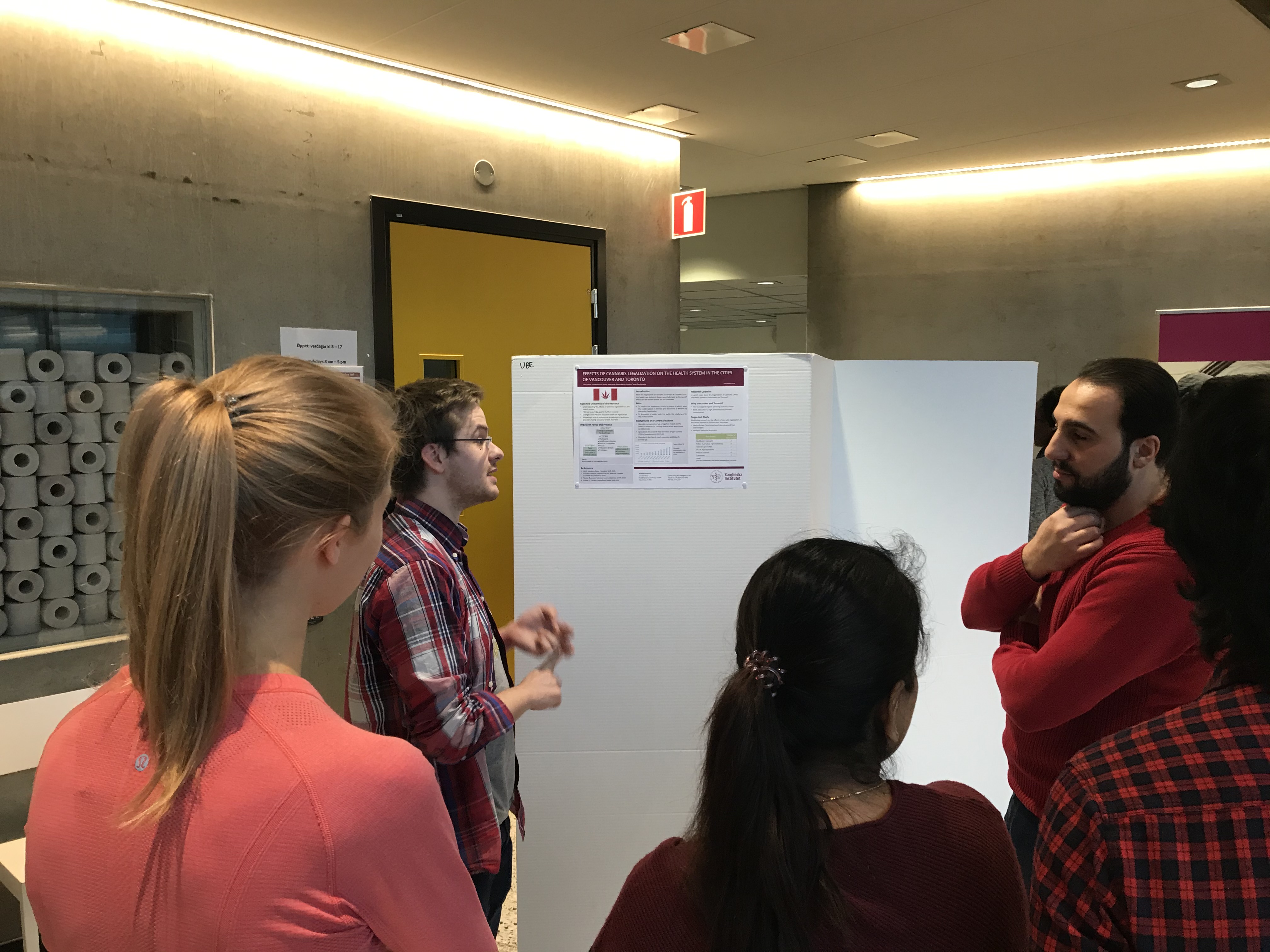
Health policy and systems: a course review
New year, new course review! Here I bring you the review for our third course of the Health Economics, Policy and Management programme, titled “Health policy and systems”, which resulted to be the most challenging one since we started our journey last september.
Course structure and lectures:
The lectures focused on the functioning of health systems and how policies are designed, implemented and evaluated. The course highlighted the importance of the context and politics of the policy agenda. Lecturers addressed diverse topics relevant to the course subject, including:
- Objectives of health systems
- WHO’s health system building blocks
- Policy implementation and evaluation
- Health policy triangle
- Medical technologies and pharmaceuticals
- Power issues and policy
- The politics of health care reform
- Community health systems
- Stakeholders analysis
- Systems thinking
The director for this course was professor Dorcus Kiwanuka Henriksson MD, MPH, PhD; a renowned researcher in the field of district health systems. The team of lecturers included very experienced and passionate international researchers in the specific areas covered during the course.
Schedule:
The course had a duration of 8 weeks. We had lectures in the morning and afternoon as well as tons of group work for the assignments. The schedule included a sort of “reading period” of two weeks during the holidays in which we had to deliver our peer review and individual assignment.
Evaluation:
This course was assessed both individually and in teams.
- Group evaluation: This course demanded us the most so far regarding group work since day one. Each group was assigned with a country and we had to agree upon one challenge that the country’s health care system fails. We were asked to write a report developing the situation of the selected issue and propose relevant research which would provide evidence for policy making. Our progress was shared weekly with the class and staff in order to receive/provide feedback. We ended the assignment by presenting posters that we designed.
- Individual evaluation: It consisted in a final essay on one type of study in health systems and policy. We all were assigned with one article and provided with relevant literature to compare and analyse the article with a critical point of view. After the break, we engaged in a final evaluated debate using the “Fish bowl method”.
- Peer review: During the reading period in the holiday break, each of us had to review a draft of the assignment of one of our peers. This dynamic helped us improve our essays while practicing our team work skills.

religion in Ghana’s healthcare use and provision

cannabis legalization on Canada’s healthcare system
Class insights…
Efthymios Skoufas (Greece):
What did you like the most about the course?
We had weekly checkpoints during the course for which all of the class and faculty would come together to discuss the progress achieved in the group assignment and how to resolve any of the issues that may have arisen. This allowed for direct and meaningful feedback that could be taken into account and integrated right away. The group assignment was also quite challenging, allowing a lot of space for us to expand our knowledge in the field while doing the necessary research to complete it. This is an essential part of this master’s programme and, although frustrating at times, it seems that the best way to learn to swim is by jumping in the pool and figuring it out.
Which where your favorite lectures and why?
On the first day of the course, we attended a lecture by professor Goran Tomson of the Royal Swedish Academy of Sciences, who discussed the global challenges for health workforce. He also introduced new concepts, such as iatrogenic poverty, which describes how an inequitable health system can expose patients to catastrophic health expenditures and, eventually, poverty. Another remarkable lecture was delivered by Mats Brommels, Professor and Chair of the LIME Department at KI. He expanded on the politics of healthcare and the limits that political agendas set on the scope and delivery of healthcare reforms. It was good to get a reality check that healthcare, despite our best technocratic efforts and accumulation of knowledge on best practices, remains a political issue. One of the strongest points of both lectures was how engaging their delivery was, with a minimal use of PowerPoint presentations and a lot of discussion between the students and the faculty. Including the students as continuous co-creators of the academic curriculum is remarkable and, when it happens, is one of the biggest achievements of Karolinska Institutet.
Zin Min Thet Lwin (Myanmar):
What did you like the most about the course?
One thing I learned from this course is systems thinking. It is about thinking of the big picture; seeing how things work in complex systems and how these add up to one large unit. It was pretty handy when we reviewed different national health systems as part of the course. The tasks were a bit challenging to be honest but at the same time, rewarding. As a team and through several intensive peer reviews, we managed to produce country analysis reports and conduct poster presentations within one-month period. It was a good experience for me.
Which where your favorite lectures and why?
Among all the interesting lectures in this course, I really enjoyed the one on the “Primary health care (PHC) – now more than ever?” by Claudia Hanson. The lecture was backed up by her practical experiences and at the end, I was convinced how important the PHC is. Another one that I liked was “Objectives of the health system” by Carina King. She was strong and pretty straightforward about her opinions. Next one was my all-time favorite Mats Brommels and his lecture on “the politics of health care reform”. It was structured on real-life case reports and included dynamic group discussions.
—-
Hope you enjoyed the blogpost! Stay tuned for more course reviews.
Godspeed,
Julio.
email: julio.sosa@stud.ki.se
Linkedin: https:/www.linkedin.com/in/julio-sosa-maldonado-659301175/
Instagram: @julio.sosam

0 comments